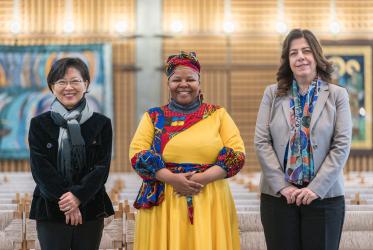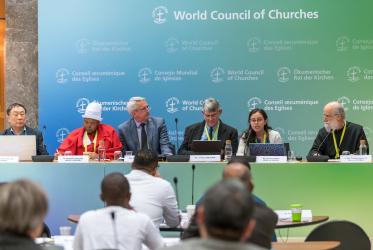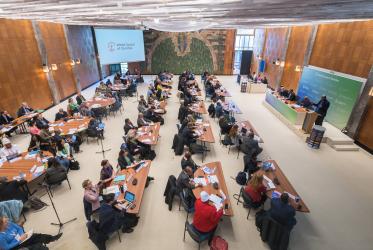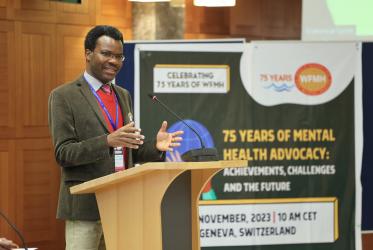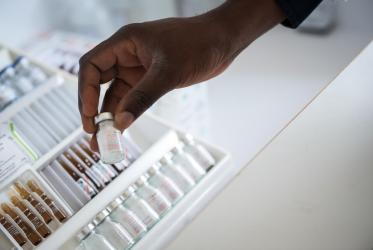Displaying 1 - 20 of 339
Is health the same for all?
17 April 2024
WCC, WHO commemorate 50 years of collaboration
04 April 2024
Three WCC commissions elect vice moderators
08 March 2024
In Angola, WCC takes human rights approach to obstetric fistula
01 February 2024
WCC webinar explores decolonizing beauty
11 December 2023
WCC Eco-School begins in Crete
15 November 2023
WCC will host hybrid event on mental health advocacy
10 November 2023








